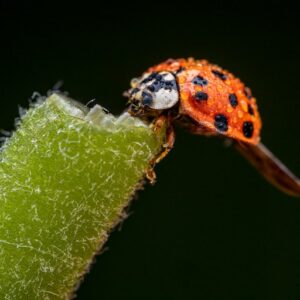Organic Pest Control Techniques
Bugs and insects are a given in any garden. Some of them are beneficial, but others are big threats. Organic farming is the safest way of agriculture, which protects humans, plants, soil, water, and the whole ecosystem. When we do organic gardening, we must know how to control pests organically. Here, we introduce top 5 organic pest control techniques. Healthy soil will minimize pest attacks. Then, you correctly identify the pest damage in the early stage. Once you identify the problem, you can effectively reduce the pest population or damage. Here are a number of pest control techniques you can use to keep your plants safe and pests-free.


1. Mechanical Way
One of the simplest ways of handling pests. Handpicking, use of handbags and net bags, cut the plant fully, or remove the affected area. Pest control can be done Mechanically by physically removing affected plants and plant parts. Handpicked and destroyed them.
2. Sticky traps
Sticky traps with strong adhesive parts. These traps are used to catch the insects and flies which are attracted to a particular color. Flies are attracted to the color and trapped in the sticky part.
3. Biological way of pest control
Biological control is using living organisms to manage the pest population. In which using the natural enemies of pests to suppress them Different organisms can be used as biocontrol agents such as wasps, mites, beetles and fungi.
4.Oil Sprays
Various oils can be used for this. Oil sprays suffocate the pests. These are non toxic so it is extremely safe for humans. Use any natural or vegetable oil. Neem oil is widely used. Mix oil with water or soap water, then spray on the plants. This control the target insect and mite pests and without injury to the plants
5.Bio-Pesticides
Bio-pesticides harm neither plants nor farmers. The most common bio-pesticide used as neem. Neem water sprayed over the plants. These bio pesticides have on risk to the environment, so they don’t damage the crops. These are slow working pesticides so we apply them frequently.